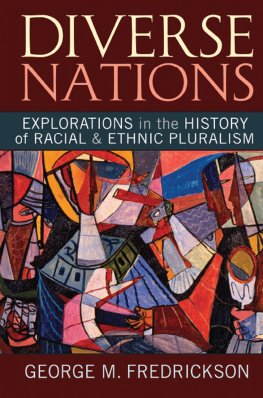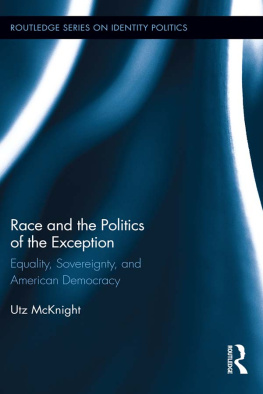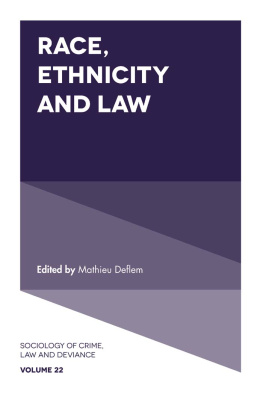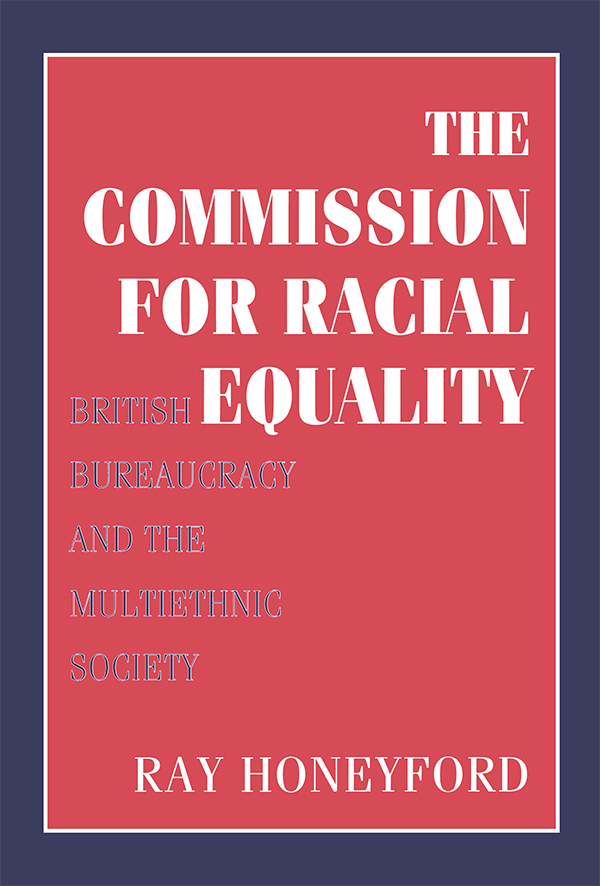Ray Honeyford - Commission for Racial Equality: British Bureaucracy and the Multiethnic Society
Here you can read online Ray Honeyford - Commission for Racial Equality: British Bureaucracy and the Multiethnic Society full text of the book (entire story) in english for free. Download pdf and epub, get meaning, cover and reviews about this ebook. year: 1998, publisher: Routledge, genre: Politics. Description of the work, (preface) as well as reviews are available. Best literature library LitArk.com created for fans of good reading and offers a wide selection of genres:
Romance novel
Science fiction
Adventure
Detective
Science
History
Home and family
Prose
Art
Politics
Computer
Non-fiction
Religion
Business
Children
Humor
Choose a favorite category and find really read worthwhile books. Enjoy immersion in the world of imagination, feel the emotions of the characters or learn something new for yourself, make an fascinating discovery.

- Book:Commission for Racial Equality: British Bureaucracy and the Multiethnic Society
- Author:
- Publisher:Routledge
- Genre:
- Year:1998
- Rating:3 / 5
- Favourites:Add to favourites
- Your mark:
Commission for Racial Equality: British Bureaucracy and the Multiethnic Society: summary, description and annotation
We offer to read an annotation, description, summary or preface (depends on what the author of the book "Commission for Racial Equality: British Bureaucracy and the Multiethnic Society" wrote himself). If you haven't found the necessary information about the book — write in the comments, we will try to find it.
In the United Kingdom, as in the United States, race relations are surrounded with taboos defined by the politically correct concepts of what Ray Honeyford calls the race relations lobby. This lobby, championed by the Commission for Racial Equality (CRE) has a vested interest in depicting the United Kingdom as a society rotten with endemic racism, and its ethnic minorities as victims doomed to failure. An outgrowth of the Race Relations Act of 1976, the Commission was founded in response to worthy concerns about race and patterned after its American prototype, the Congress of Racial Equality. Its constant demands for increased powers have only increased with the coming into power of the New Labour Party. That makes Ray Honeyfords critique all the more urgent. Honeyford exposes the policies and practices of the Commission to public view, encouraging informed debate about its need to exist. The CRE possesses considerable legal powerspowers which seriously undermine the great freedoms of association, contract, and speech as-sociated with the United Kingdom. Without denying the presence of racial prejudice, Honeyford shows that the picture of the United Kingdom as a divisive nation is a serious misrepresentation.
Placing the CRE in its historical and political context, Honeyford outlines its powers, and analyzes its formal investigations in the fields of education, employment, and housing. He also examines its publicity machine and its effect on public and educational libraries. He points out the danger of uncritically replicating the American experience. According to Honeyford, Americans have replaced a melting-pot notion of society, with all citizens loyal to a national ideal, with a tossed-salad concept which encourages the creation of self-conscious, separate, and aggressive ethnic groups, each claiming special access to the public purse, and having little regard for national cohesion and individual liberties.
Ray Honeyford: author's other books
Who wrote Commission for Racial Equality: British Bureaucracy and the Multiethnic Society? Find out the surname, the name of the author of the book and a list of all author's works by series.






